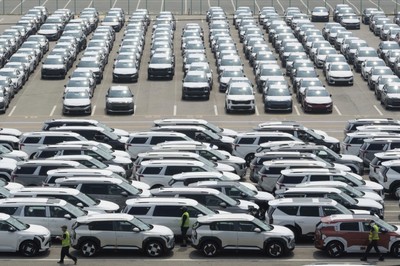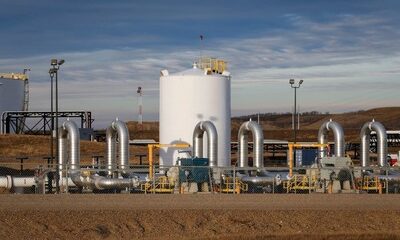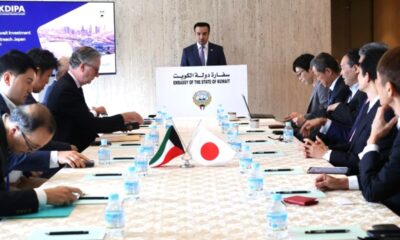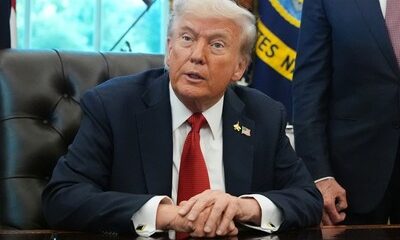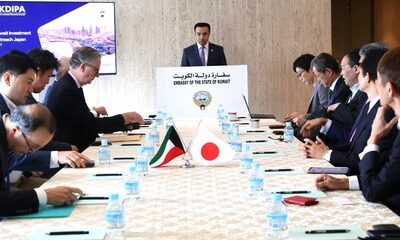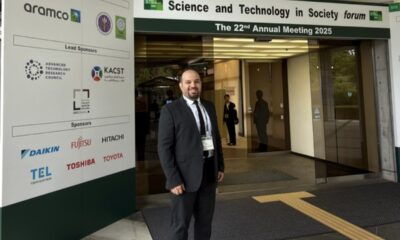Vehicles for export are parked at a port in Pyeongtaek, South Korea on July 8. (AP)
WASHINGTON, July 8, (AP): US President Donald Trump on Monday set a 25% tax on goods imported from Japan and South Korea, as well as new tariff rates on a dozen other nations that would go into effect on Aug.1. Trump provided notice by posting letters on Truth Social that were addressed to the leaders of the various countries.
The letters warned them to not retaliate by increasing their own import taxes, or else the Trump administration would further increase tariffs. “If for any reason you decide to raise your Tariffs, then, whatever the number you choose to raise them by, will be added onto the 25% that we charge,” Trump wrote in the letters to Japanese Prime Minister Shigeru Ishiba and South Korean President Lee Jae Myung.
The letters were not the final word from Trump on tariffs, so much as another episode in a global economic drama in which he has placed himself at the center. His moves have raised fears that economic growth would slow to a trickle, if not make the US and other nations more vulnerable to a recession. But Trump is confident that tariffs are necessary to bring back domestic manufacturing and fund the tax cuts he signed into law last Friday.
He mixed his sense of aggression with a willingness to still negotiate, signaling the likelihood that the drama and uncertainty would continue and that few things are ever final with Trump. “It’s all done,” Trump told reporters Monday. “I told you we’ll make some deals, but for the most part we’re going to send a letter.”
South Korea’s Trade Ministry said early Tuesday that it will accelerate negotiations with the United States to achieve a mutually beneficial deal before the 25% tax on its exports goes into effect. Imports from Myanmar and Laos would be taxed at 40%, Cambodia and Thailand at 36%, Serbia and Bangladesh at 35%, Indonesia at 32%, South Africa and Bosnia and Herzegovina at 30% and Kazakhstan, Malaysia and Tunisia at 25%.
Trump placed the word “only” before revealing the rate in his letters to the foreign leaders, implying that he was being generous with his tariffs. But the letters generally followed a standard format, so much so that the one to Bosnia and Herzegovina initially addressed its woman leader, Željka Cvijanović, as “Mr. President.” Trump later posted a corrected letter.

 Latest News23 hours ago
Latest News23 hours ago
 Politics16 hours ago
Politics16 hours ago
 Latest News17 hours ago
Latest News17 hours ago
 Latest News15 hours ago
Latest News15 hours ago
 Politics7 hours ago
Politics7 hours ago
 Business7 hours ago
Business7 hours ago
 Latest News7 hours ago
Latest News7 hours ago
 Politics6 hours ago
Politics6 hours ago
